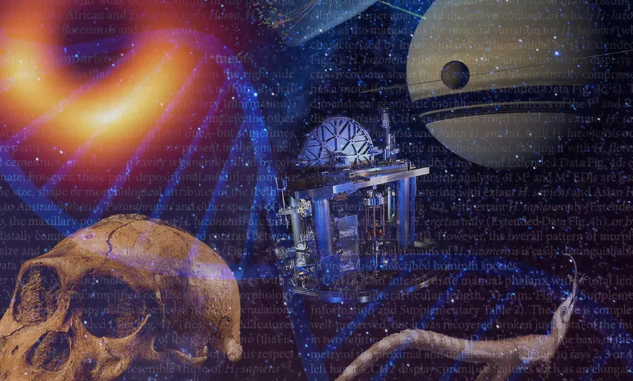
The world of science is a realm of constant exploration, where breakthroughs and discoveries continually reshape our understanding of the universe. Here, we embark on a journey through the top 10 most fascinating discoveries that have captivated the scientific community and the world at large:
1. Quantum Entanglement (20th Century)
Discovery: Quantum entanglement, a phenomenon where particles become interconnected, was experimentally verified.
Significance: This discovery challenges classical notions of physics, as entangled particles exhibit correlated behavior regardless of distance. It has paved the way for advancements in quantum computing and secure communication.
Intricacies of the Quantum Realm: Quantum entanglement highlights the mysterious and interconnected nature of particles, pushing the boundaries of our understanding of fundamental physics.
2. Higgs Boson (2012)
Discovery: The Large Hadron Collider (LHC) confirmed the existence of the Higgs boson, a fundamental particle.
Significance: The Higgs boson is crucial to the Standard Model of particle physics, explaining how particles acquire mass. Its discovery confirmed a fundamental aspect of our understanding of the universe’s building blocks.
Unraveling the Particle Puzzle: The confirmation of the Higgs boson’s existence completed a puzzle that scientists had been piecing together for decades, providing insight into the nature of mass and the fundamental forces of the universe.
3. Gravitational Waves (2015)
Discovery: Gravitational waves, ripples in spacetime caused by cataclysmic events, were detected for the first time.
Significance: This discovery validated a prediction made by Albert Einstein a century earlier and opened a new era in astrophysics. It allows scientists to observe cosmic phenomena, such as merging black holes, in ways previously impossible.
Listening to the Cosmos: Gravitational wave detection provides a unique auditory perspective on the universe, allowing scientists to “listen” to the most energetic events in the cosmos.
4. CRISPR-Cas9 Gene Editing (2012)
Discovery: CRISPR-Cas9 technology, a revolutionary gene-editing tool, was developed.
Significance: CRISPR-Cas9 allows precise modification of genes, offering unprecedented capabilities in genetic engineering. It has far-reaching implications for treating genetic disorders and creating genetically modified organisms.
Editing the Code of Life: The power of CRISPR-Cas9 to edit genetic information opens up possibilities for addressing genetic diseases and designing organisms with desired traits.
5. Dark Matter and Dark Energy (20th Century)
Discovery: Observations indicated the existence of dark matter and dark energy, which make up the majority of the universe.
Significance: While invisible and mysterious, dark matter and dark energy play a crucial role in the cosmos, influencing the structure and expansion of the universe. Understanding these entities is one of the greatest challenges in astrophysics.
Unseen Forces Shaping the Cosmos: Dark matter and dark energy remain enigmatic, driving ongoing research to uncover their nature and unravel the mysteries of the universe’s composition.
6. CRISPR Babies (2018)
Discovery: Chinese scientist He Jiankui claimed to have edited the genes of twin babies using CRISPR-Cas9.
Significance: The birth of the first genetically edited babies ignited ethical debates and raised questions about the responsible use of gene-editing technologies in humans.
Ethical Frontiers: The CRISPR babies controversy underscores the need for ethical considerations in the application of powerful genetic technologies, prompting global discussions on responsible scientific practices.
7. Exoplanets and the Search for Extraterrestrial Life (21st Century)
Discovery: Thousands of exoplanets, planets outside our solar system, have been discovered, some in the habitable zone.
Significance: The search for exoplanets and signs of habitability fuels the quest to answer the age-old question: Are we alone in the universe?
Exploring Alien Worlds: The discovery of exoplanets expands the possibilities for finding potentially habitable environments and sparks our imagination about life beyond Earth.
8. CRISPR Base Editing (2016)
Discovery: Scientists developed CRISPR base editing, a more precise form of gene editing.
Significance: CRISPR base editing allows changes to single DNA letters without causing double-strand breaks, minimizing unintended consequences. It enhances the precision and safety of gene-editing technologies.
Fine-Tuning Genetic Information: CRISPR base editing represents a refinement in gene-editing capabilities, offering greater control over genetic modifications for therapeutic and research purposes.
9. IceCube Neutrino Observatory (2013)
Discovery: The IceCube Neutrino Observatory detected high-energy neutrinos, particles from distant cosmic sources.
Significance: Neutrinos are elusive particles that provide insights into extreme cosmic environments, such as supernovae and active galactic nuclei.
Ghostly Messengers from the Cosmos: Neutrinos, with their unique properties, offer a window into the most energetic and distant events in the universe, complementing traditional astronomical observations.
10. CRISPR Imaging (2019)
Discovery: CRISPR-based imaging techniques enable the visualization of specific DNA sequences within living cells.
Significance: CRISPR imaging revolutionizes our ability to observe the intricate details of cellular processes, offering a powerful tool for studying genetics and biology in real-time.
Seeing DNA in Action: CRISPR imaging provides a dynamic view of genetic processes, enhancing our understanding of how genes function within living cells.
Conclusion: The Ever-Expanding Frontiers of Knowledge
These fascinating discoveries exemplify the ceaseless quest for understanding that defines the scientific endeavor. Each breakthrough opens new frontiers, pushing the boundaries of knowledge and inspiring future generations of scientists. As we continue to explore the mysteries of the universe, these discoveries serve as beacons, guiding us toward a deeper comprehension of the intricacies of the natural world and our place within it.
Leave a Reply